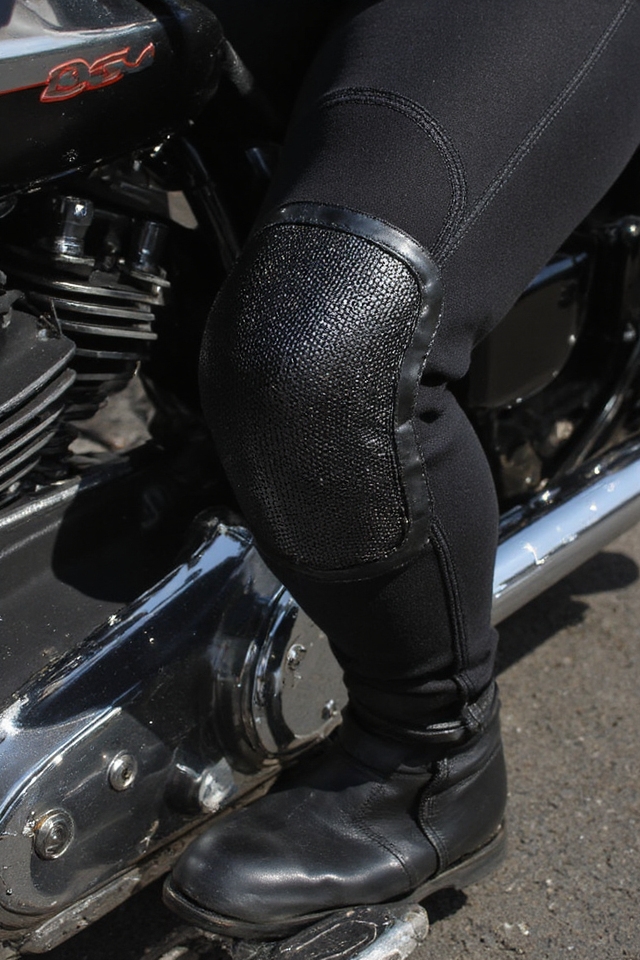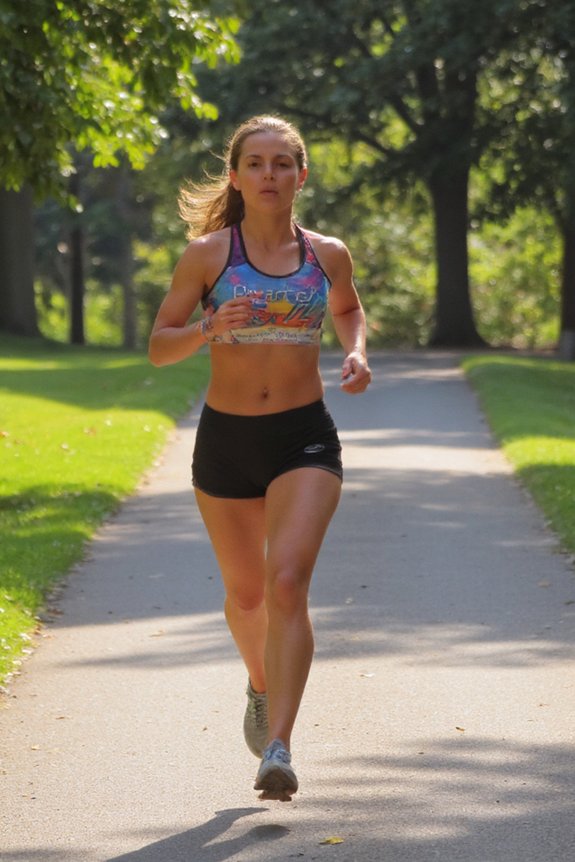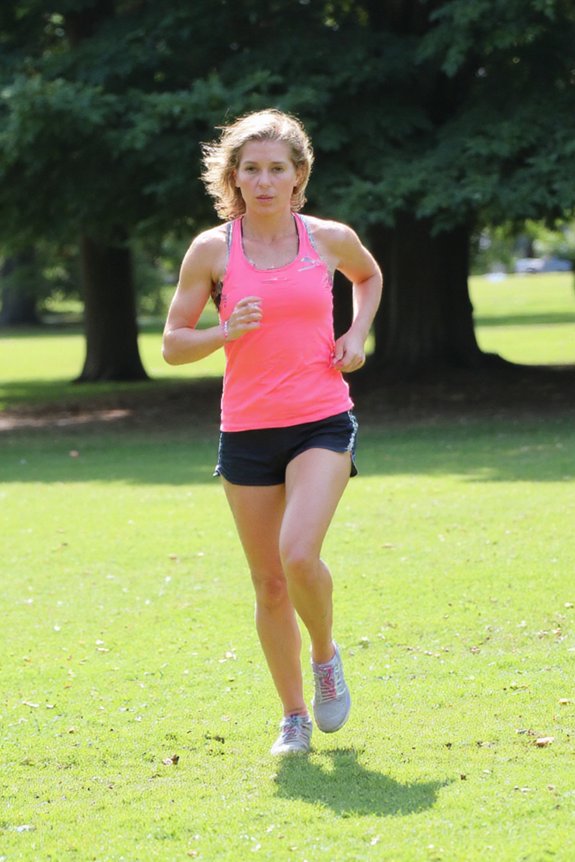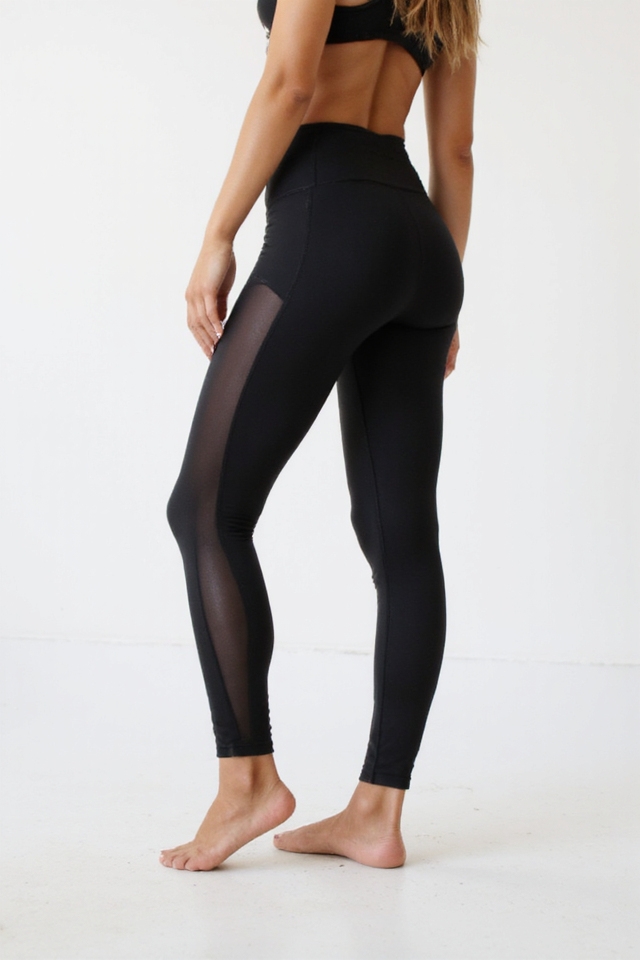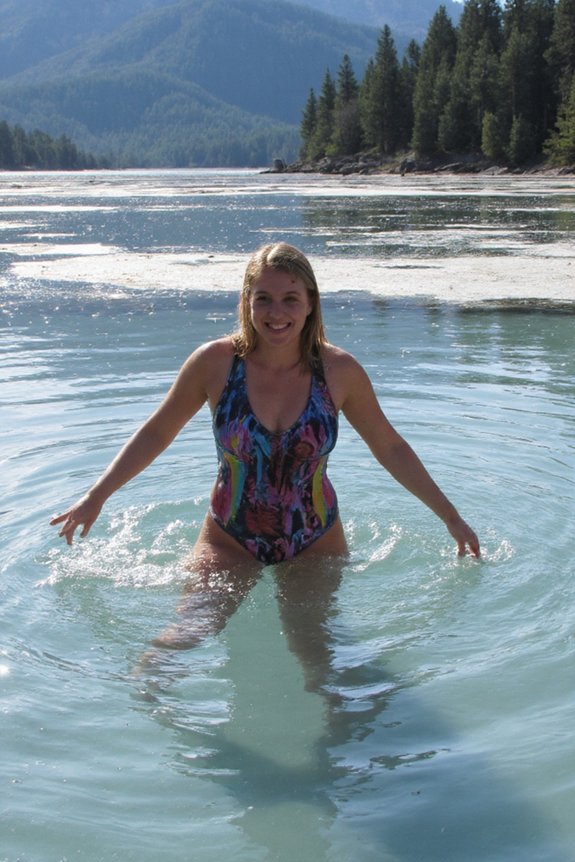If you’re a woman over 35 considering a marathon, you’re not alone. Many women your age are stepping up to the challenge, and it’s a thrilling journey. However, there are some key considerations to keep in mind as you lace up your running shoes. Your body mightn’t recover as quickly as it did in your twenties. With decreased muscle mass and hormonal changes, you’ll need to allow more time between workouts. Listen to your body; it knows best.
Embrace the marathon journey, but listen to your body—recovery takes time as you age.
Hormonal fluctuations can also play a significant role in your training. If you’re experiencing peri-menopause or menopause, you might notice shifts in energy levels and endurance. Don’t shy away from adjusting your training schedule to align with how you feel. It’s okay to take a step back and focus on recuperation when your body demands it.
Injury prevention is essential. As you age, your risk of injuries increases due to decreased flexibility and bone density. Incorporating strength training into your routine is crucial. Strong muscles support your joints, making them less prone to injury.
Also, focus on your nutrition. Eating iron-rich foods, calcium, and omega-3 fatty acids will help maintain your bone health and overall well-being.
When it comes to training strategies, gradual progression is key. Don’t rush into increasing your weekly mileage. This approach helps prevent overtraining and burnout. Incorporate variety into your workouts. Strength training, cross-training, and scheduled rest days are vital to keeping overuse injuries at bay.
Set realistic goals and pace yourself during your runs. Remember, it’s a marathon, not a sprint.
Hydration is another significant aspect. Develop a hydration plan, especially for your long runs. Balance your electrolytes, and don’t forget about your carbohydrate intake; complex carbs will keep your energy levels steady.
After your workouts, focus on protein-rich foods to support muscle recovery.
Finding a support system can also make a huge difference in your training journey. Joining running groups offers motivation and camaraderie. Online forums and training apps can provide guidance and help track your progress. If you feel like you need more personalized advice, consider hiring a running coach.
Invest in proper footwear and breathable clothing to guarantee comfort and safety. Reflective gear is essential for those early morning or evening runs.
Embrace this journey, and remember, you’re not just training for a marathon; you’re transforming your life.

